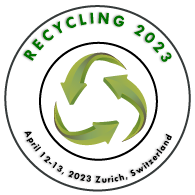FOOD AND AGRICULTURAL WASTE RECYCLING
The majority of human activity produces waste, which is unavoidable. Economic development and rising living standards in Asia have resulted in an increase in the quantity and complexity of waste generated, while industrial diversification and the provision of expanded health-care facilities have added significant quantities of industrial and agricultural hazardous waste and biomedical waste to the waste stream, potentially posing serious environmental and human health risks.
Agricultural activities such as farming, animal rearing, and aquaculture all produce residue. Composting is one of the more environmentally friendly ways to manage organic waste while also improving soil fertility and structure. Agricultural waste recycling should be enhanced in order to develop the economy, safeguard the environment, conserve natural resources, and foster a shared environmental vision.
It is vital to bring attention to the possibilities associated with agricultural waste recycling. It's also crucial to figure out the best way to turn agricultural waste into usable material in order to boost productivity, benefit the environment, and save energy. In addition, a significant amount of research on food waste should be conducted with the goal of recovering energy or other vital linked goods.
Related Conference of FOOD AND AGRICULTURAL WASTE RECYCLING
FOOD AND AGRICULTURAL WASTE RECYCLING Conference Speakers
Recommended Sessions
- ADVANCED RECYCLING: PHYSICAL & CHEMICAL
- BIO- ELECTROCHEMICAL TREATMENT SYSTEM
- BIO-PLASTICS
- BIOREMEDIATION
- CHALLENGES IN COLLECTION & SEGREGATION OF PLASTICS WASTE
- CHEMICAL WASTE RECYCLING
- CIRCULAR ECONOMY FOR ELECTRIC VEHICLES (EV) BATTERIES
- CIRCULAR PLASTICS FOR PACKAGING
- E-WASTE
- FOOD AND AGRICULTURAL WASTE RECYCLING
- INDUSTRIAL WASTE RECYCLING
- METAL RECYCLING
- PAPER RECYCLING
- PLASTICS RECYCLING: CHALLENGES AND OPPORTUNITIES
- SOLID WASTE MANAGEMENT
- TECHNOLOGY & INNOVATION IN PLASTICS RECYCLING
- THERMAL WASTE RECOVERY
- WASTE RECYCLING AND MANAGEMENT
- WASTE WATER TREATMENT

